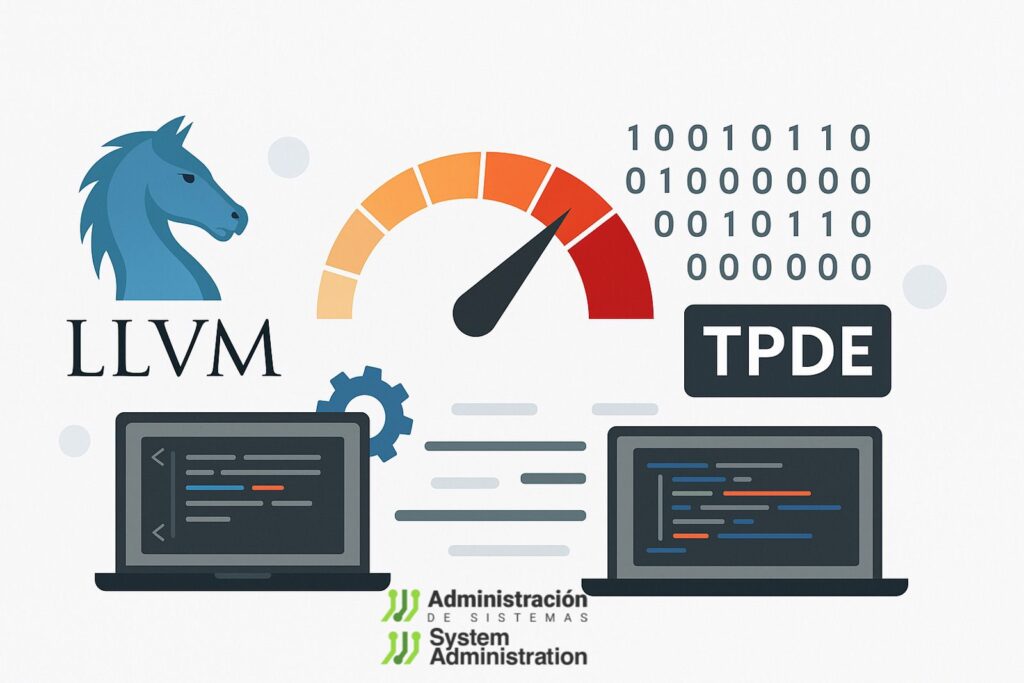The LLVM Project has officially released LLVM 21.1, the first stable release of the LLVM 21 compiler stack. This half-yearly update to the widely used open-source compiler infrastructure introduces significant hardware support, new C and C++ language features, and enhancements across multiple components.
New hardware targets
Among the most notable changes is the introduction of the AMD GFX1250 target, believed to be tied to a future APU refresh based on the RDNA4 architecture (potentially RDNA 4.5). While backend additions are still in progress, initial support is already available in this release.
There are also important updates to the AMDGPU backend, essential for the ROCm ecosystem and efforts to expand GPU-oriented standard libraries.
On the NVIDIA side, LLVM 21 adds -mcpu=gb10 support for the recently unveiled NVIDIA GB10 Superchip.
For RISC-V, the release includes multiple backend improvements and optimizations, further strengthening the position of this rapidly growing architecture within open-source and specialized hardware communities.
Clang 21: advancing C and C++
The Clang 21 frontend for C and C++ introduces several important updates:
- New optimizations around pointer arithmetic on null pointers.
- Early support for C++2c features.
- Continued work on experimental C2y features.
- New C warnings to help developers catch common errors.
- Refined compiler diagnostics for clearer and more useful feedback.
In terms of vector extensions, Clang 21 adapts to Intel’s recent AVX10 changes, dropping AVX10-256 support and unconditionally setting 512-bit registers as the maximum vector width.
Ecosystem improvements
The release also delivers improvements to LLDB, the integrated debugger within LLVM, with optimizations and fixes targeting new and emerging architectures.
Additionally, LLVM 21.1 enhances integration with standard libraries and broadens its reach in environments where performance and portability are critical, including embedded systems and high-performance computing platforms.
Availability and upcoming updates
LLVM 21.1.0 is now available for download on GitHub:
👉 https://github.com/llvm/llvm-project/releases/tag/llvmorg-21.1.0
Following the project’s regular cadence, 21.1.x point releases will arrive in the coming weeks with stability and security patches.
Conclusion
With LLVM 21.1, the open-source compiler community takes another step forward in its role as a global reference point. From support for new hardware like AMD GFX1250 and NVIDIA GB10, to the modernization of C and C++ with upcoming C2y and C++2c standards, this release reinforces LLVM’s place as the compiler of choice for both research and large-scale production.
As architectures like RISC-V gain traction and hardware vendors increasingly adopt modular, open compilers, LLVM continues to demonstrate its adaptability and technical leadership.
Frequently Asked Questions (FAQ)
What is LLVM and what is it used for?
LLVM is an open-source compiler infrastructure widely used to build compilers, analyzers, and related tools. Its modular design makes it suitable for multiple languages and hardware targets.
What’s new in LLVM 21.1?
Highlights include AMD GFX1250 support, RISC-V backend improvements, NVIDIA GB10 Superchip support, new C and C++ features, and enhancements to LLDB.
Where can I download LLVM 21.1?
LLVM 21.1.0 is available on the official GitHub repository: LLVM Project Releases.
How does Clang relate to LLVM?
Clang is the C and C++ frontend within the LLVM ecosystem. It uses LLVM as a backend to generate optimized code for different hardware architectures.

